I was seventeen when I had a mind explosion (ahem, a “minor epiphany”) at the Good Friday liturgy during Holy Week.
I was at Our Lady of Lourdes Parish in Overbrook, Pennsylvania, with my eight siblings and my parents. I had never been one to experience much emotion in regards to my faith, but my desire for Truth—praise God—was innate and rather fierce.
On that Good Friday, something in me was arrested by the part of the liturgy known as “The Great Intercessions.” It dawned on me, for the first time, that we were praying for every human being on the face of the earth. And I knew that no other church—no other religion—prayed so seriously, so earnestly, for human beings that did not belong to their fold.
My personal revelation went something like this:
“This is just one more proof that the Catholic Church is the True Church. This is why she is the Mother of Souls. Even those outside the Church are—in a certain sense—her children. They are lost, they have strayed, or they have never been members, but their eternal salvation matters, and she does not forget them. She desires that they be saved.”
It was the perfect altruistic solicitude of the Catholic Church that struck me so powerfully. I saw that the Church so desires the salvation of all men she gets down on her knees to intercede for them in the formal liturgies of Holy Week.
I understood it as one more verification that her claim to be “the One Church established by Jesus Christ” was, in very fact, true.
“The Mother of All the Faithful”
The Fourth Lateran Council, in 1215, called the Church “the mother of all the faithful.” In his 1891 encyclical Rerum Novarum, Pope Leo XIII spoke of the Church as “the common Mother of us all.”
Before we can understand the Church in her role as mother, however, we need to revisit the definition of the words “the Church.”
1. What is the Church?
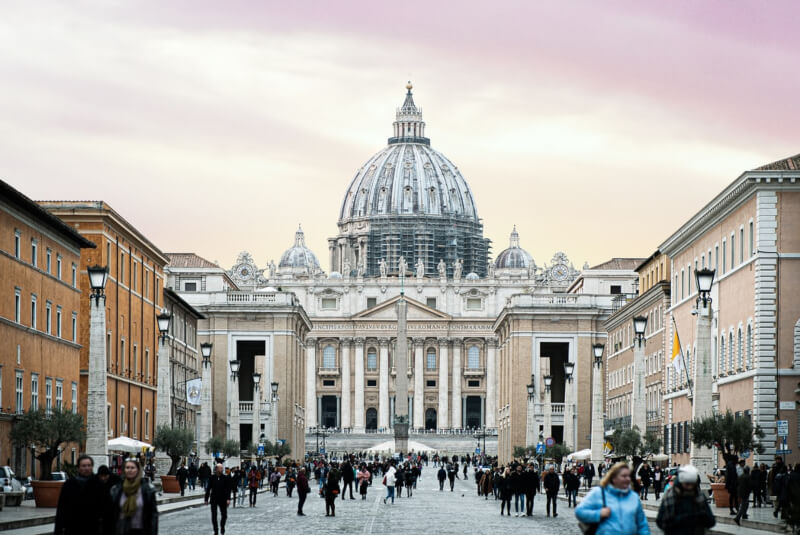
Here is a succinct definition of the Church:
The Church is that visible society of men upon earth which was founded by Jesus Christ, guaranteed by Him to exist all days until the end of the world, and sent by Him to teach all nations with His own authority…its members are bound together by the profession of the same and complete Christian faith, by the same Sacraments and worship, and by submission to the same spiritual authority vested in the successors of St. Peter—the present successor being the Bishop of Rome…
Reverend Charles Mortimer Carty, Radio Replies
The Catholic Church was established by Jesus Christ. It is His Church (“I will build my church,” cf. Matthew 16:18).
Note that the Church is “visible,” that she can be looked upon by all the world as a concrete reality—this is not simply an invisible bond of Christian souls. The Apostles understood this, and Our Lord made it clear in Matthew 18:15–17 when He told them to bring certain problems to “the Church” as the final authority.
“You cannot appeal to what you cannot see,” wrote Fr. Francis Ripley, an acclaimed defender of the Faith. “Therefore any idea that the Church consists merely of those who make an act of faith in Christ, whose number is known to God alone, cannot be sustained in the light of this text.”
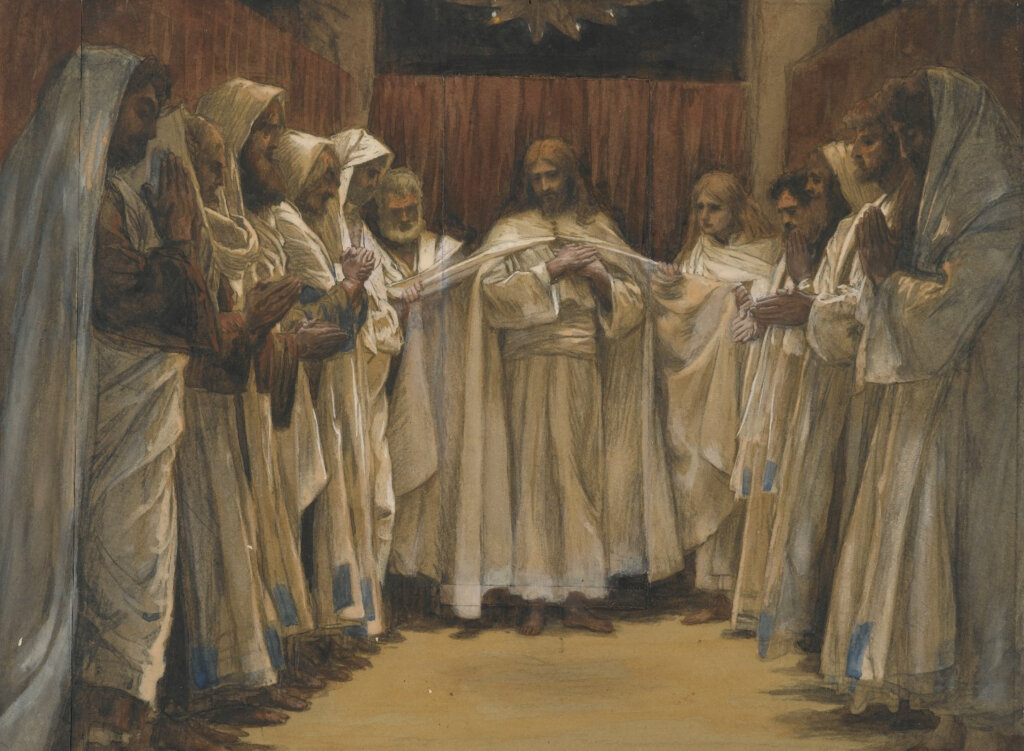
At the Last Supper, when Jesus offered His high priestly prayer, He asked His Father for unity among His disciples. “The Lord repeats this plea for four times,” writes Pope Benedict XVI in his acclaimed work Jesus of Nazareth.
The stated objective of Jesus’ prayer for unity is precisely that through the unity of the disciples, the truth of his mission is made visible for men. Unity must be visible; it must be recognizable as something that does exist somewhere in the world; as something that is inexplicable on the basis of mankind’s own efforts and that therefore makes visible the workings of a higher power…
For this the Lord prayed: for a unity that can come into existence only from God and through Christ and yet is so concrete in its appearance that in it we are able to see God’s power at work. That is why the struggle for visible unity of the disciples of Jesus Christ remains an urgent task for Christians of all times and places. The invisible “community” is not sufficient.
Pope Benedict XVI, Jesus of Nazareth: Holy Week
Of course, the Church is a mystical society that contains human members. That’s why we are so often confronted with the broken, struggling, even appalling human side of things.
The Church…is a society formed of living men, not a mere mystical union of souls. As such it resembles other societies. Like them, it has its code of rules, its executive officers, its ceremonial observances. Yet it differs from them more than it resembles them: for it is a supernatural society.
The Catholic Encyclopedia
2. Why is the Church “Mother”?
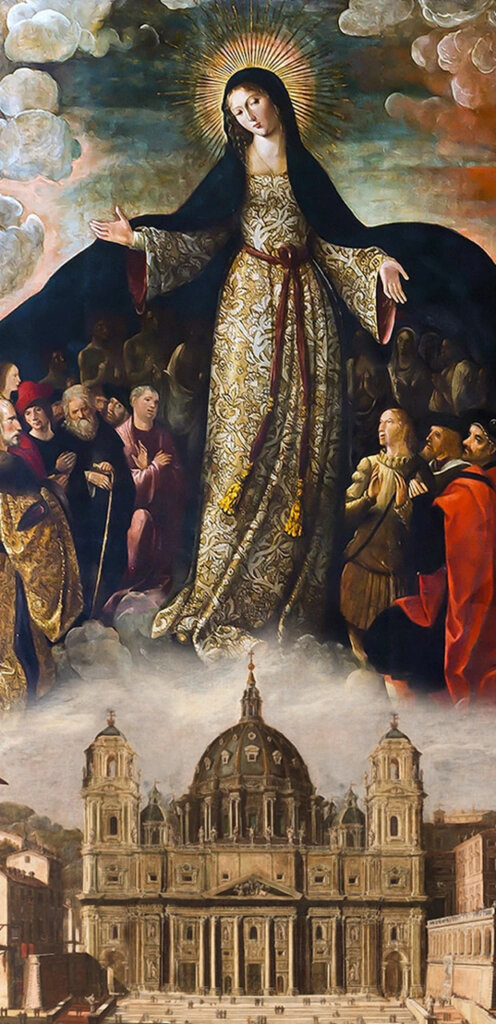
The Church is mother because she is the mystical Bride of Christ. She is mother because of her relationship to us. We are spiritually re-born in her, through the sacrament of baptism, and we receive ongoing nourishment through the rest of her sacraments.
A mother is one of God’s most special creatures. In her is carried the seed of life. In the depths of the mother’s body—and in some sense in her soul—the child takes shape and grows. Although the mother has never seen or held her child, she loves him deeply. She will talk to him, contemplate him, make plans for him, and begin to hope for his future…
Many Catholics grow up hearing the Catholic Church called Holy Mother Church. Many habitually refer to her by that name…But how many of us give conscious thought to that? Do we realize how true it is that the Church is our mother?…
In Holy Mother Church is the seed of spiritual life, given to her when Christ breathed on his apostles on Easter Sunday night, and through his commission to spread the gospel throughout the world. Think of each soul—regardless of race, color, intelligence level, or age—as a seed in the womb of Mother Church. When we do our job of sharing the faith, and those seeds are fertilized with tremendous actual graces (as a person accepts the faith), the seed begins as a new life, and the formation of the new child commences.
“The Wisdom of Mother Church” by Russell L. Ford

Any soul that has not been baptized is nevertheless called to receive baptism.
“And I have other sheep, that are not of this fold,” said Jesus to His disciples. “I must bring them also, and they will heed my voice. So there shall be one flock, one shepherd” (John 10:16). It must be a free choice, of course. God does not compel anyone to come to Him.
To the Church Christ has given the means of grace He merited by His life and death. She communicates them to her members; and those who are outside her fold she bids to enter that they too may participate in them. By these means of grace—the light of revealed truth, the sacraments, the perpetual renewal of the Sacrifice of Calvary—the Church carries on the work of sanctifying the elect. Through their instrumentality each individual soul is perfected, and conformed to the likeness of the Son of God.
The Catholic Encyclopedia
Jesus once likened Himself to a mother hen when He grieved over the obstinacy of Jerusalem. He mourned the souls that rejected Him, thereby rejecting all that pertained to their eternal salvation:
“O Jerusalem, Jerusalem, killing the prophets and stoning those who are sent to you! How often would I have gathered your children together as a hen gathers her brood under her wings, and you would not!”
Luke 13:34
Why Is This Important?
Why is it so important to know that the Church is our mother? It’s important because it requires a clear understanding of what the Church is and removes confusion, which also removes the risk of scandal.
When people—Catholic or not—don’t understand what the Church IS, they can be scandalized by the bad behavior of her members and leaders. (Which indicates we are forgetting the biblical reality of Judas, one of Christ’s own who betrayed Him.)
Yes, many Catholics have a vague idea that the Church is spiritual and that She’s not a typical institution. But some expect Her members to be living saints who never commit big sins. When shocking events take place—especially in the form of heinous sins committed by clergy—personal faith takes a blow, and Catholics leave the Church.
But the question “Why be Catholic in the midst of this scandal?” is the wrong question. It shows that we never understood what the Church was in the first place.
For many, the Catholic Church’s claim of holiness is quite provocative. After all, how can the Catholic Church possibly claim to be holy when her membership is made up of sinners? How can she claim to be perfect when some of her members (and even some of her leaders) have been found guilty of vile, scandalous, and gravely sinful deeds?
Hector Molina, Catholic apologist and speaker
[But] The Church is not holy because of her members. She is holy because her founder, Jesus Christ, is holy…because the Holy Spirit (the Sanctifier) lives and dwells in her…because Christ has made of her an instrument of sanctification…[because] The Church, while possessing true sanctity from her divine source, is nevertheless always in need of reform and purification on account of the sinfulness of her members.
Jesus promised us that the gates of hell would not prevail against the Church—but this implies that the Church will indeed come up against the very gates of hell.
As the author of Radio Replies, Reverend Charles Mortimer Carty, has said:
[E]verything is well with the Catholic Church. But I do not say that everything is well with all the members of the Church…There is a human element in the Church, and that human element is ever liable to fail. But there is also a Divine element which can never fail.
“The Common Mother of Us All”
Are you Catholic? Then the Church is your mother.
Are you not Catholic? Then the Church is the long-lost mother who is calling you home to herself. She is calling you home to Christ, whose Ecclesia may not be what we ourselves would have chosen as the channel of salvation, and yet it is the channel He has decided upon. How can we not trust His plan for our redemption?
Let the working man be urged and led to the worship of God, to the earnest practice of religion, and, among other things, to the keeping holy of Sundays and holy days. Let him learn to reverence and love holy Church, the common Mother of us all; and hence to obey the precepts of the Church, and to frequent the sacraments, since they are the means ordained by God for obtaining forgiveness of sin and for leading a holy life.
Pope Leo XIII, Rerum Novarum
If you want to learn more about the Church, and get answers to such questions as “Why do we have a pope?” “Where is the Mass in the Bible?” “Why do we confess our sins to a priest?” “Is science compatible with faith?” and more, we welcome you to sign up for the We Believe series. It’s designed for Catholics who want to go deeper through trustworthy courses that they can take at their own pace.

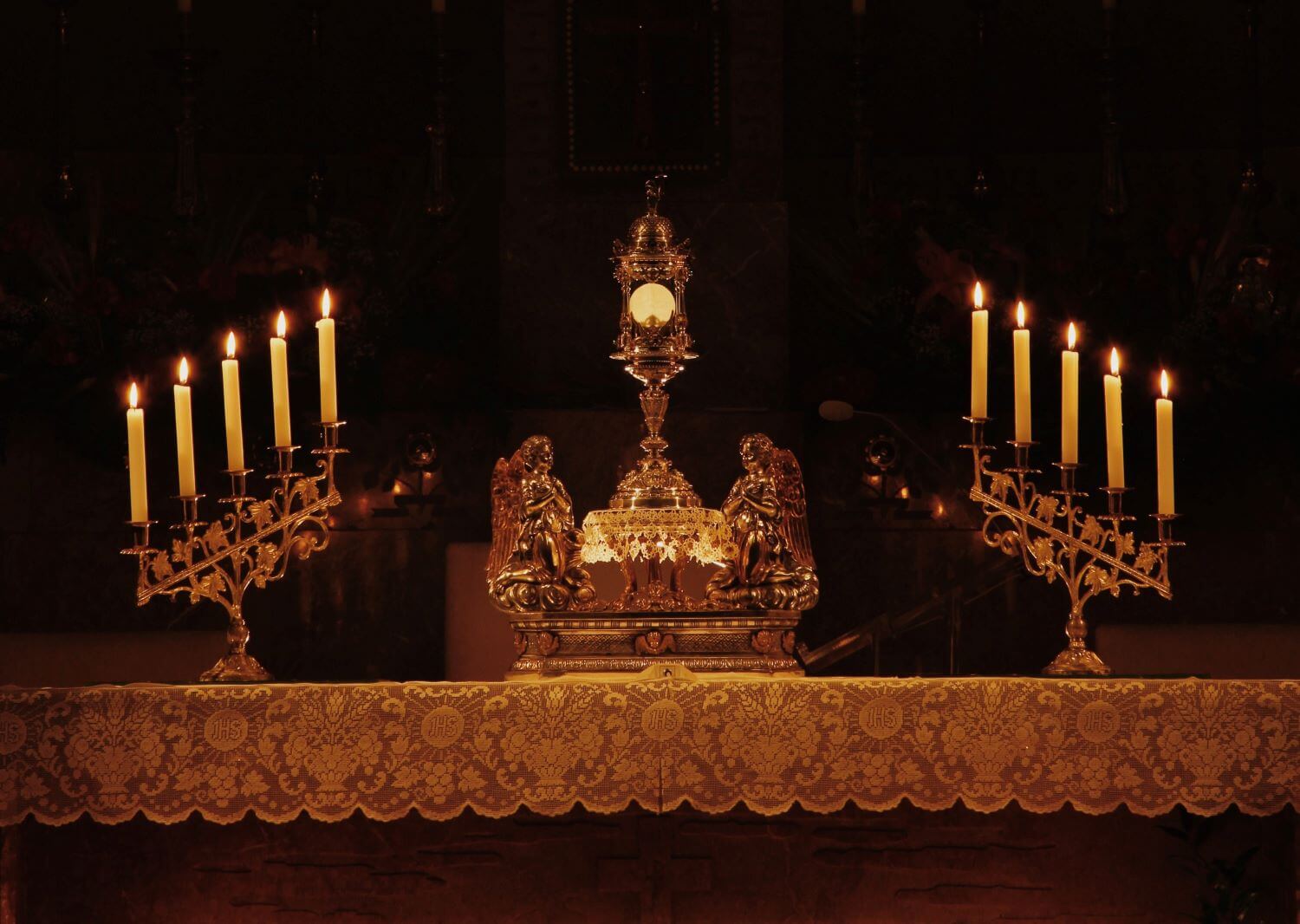
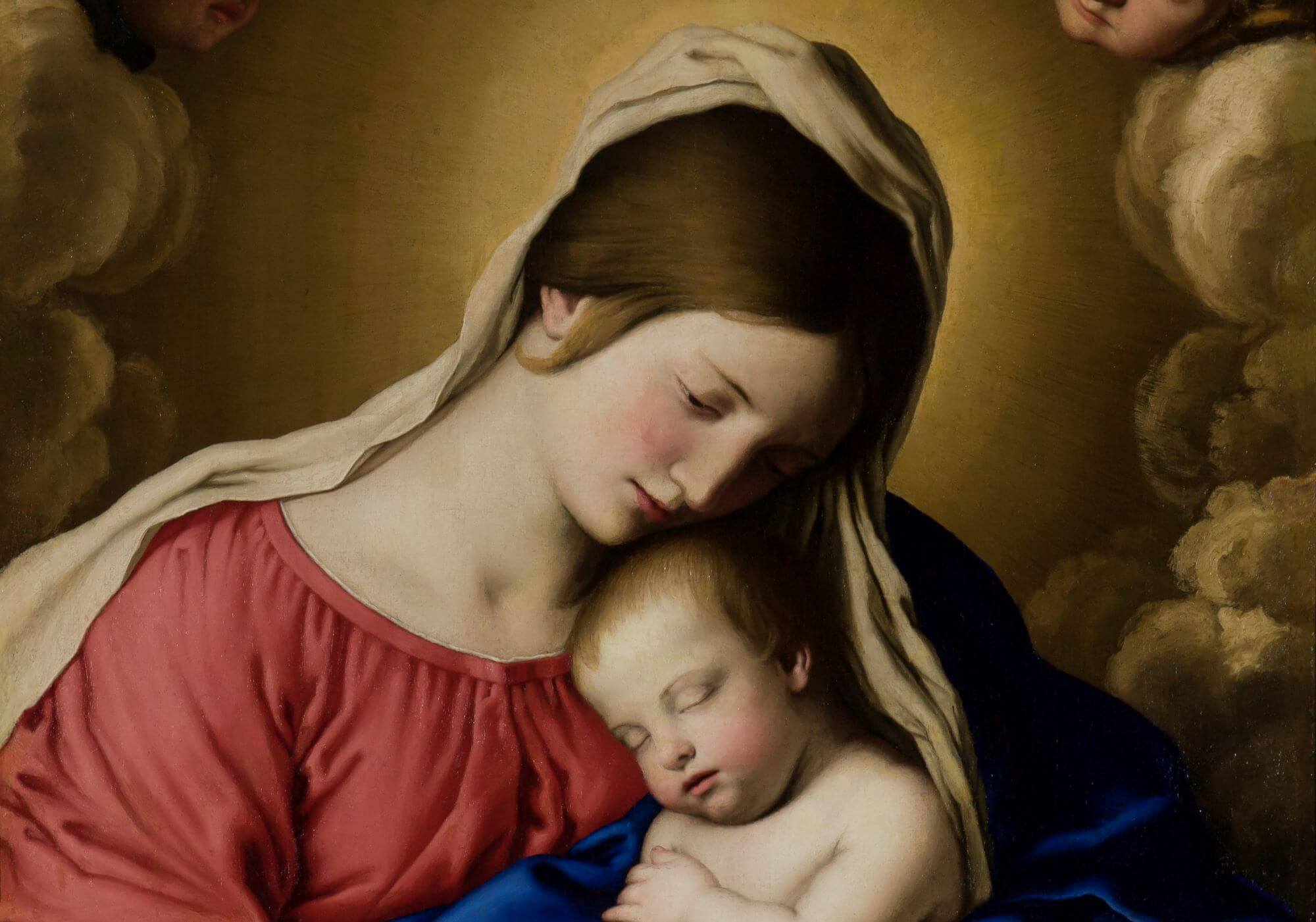
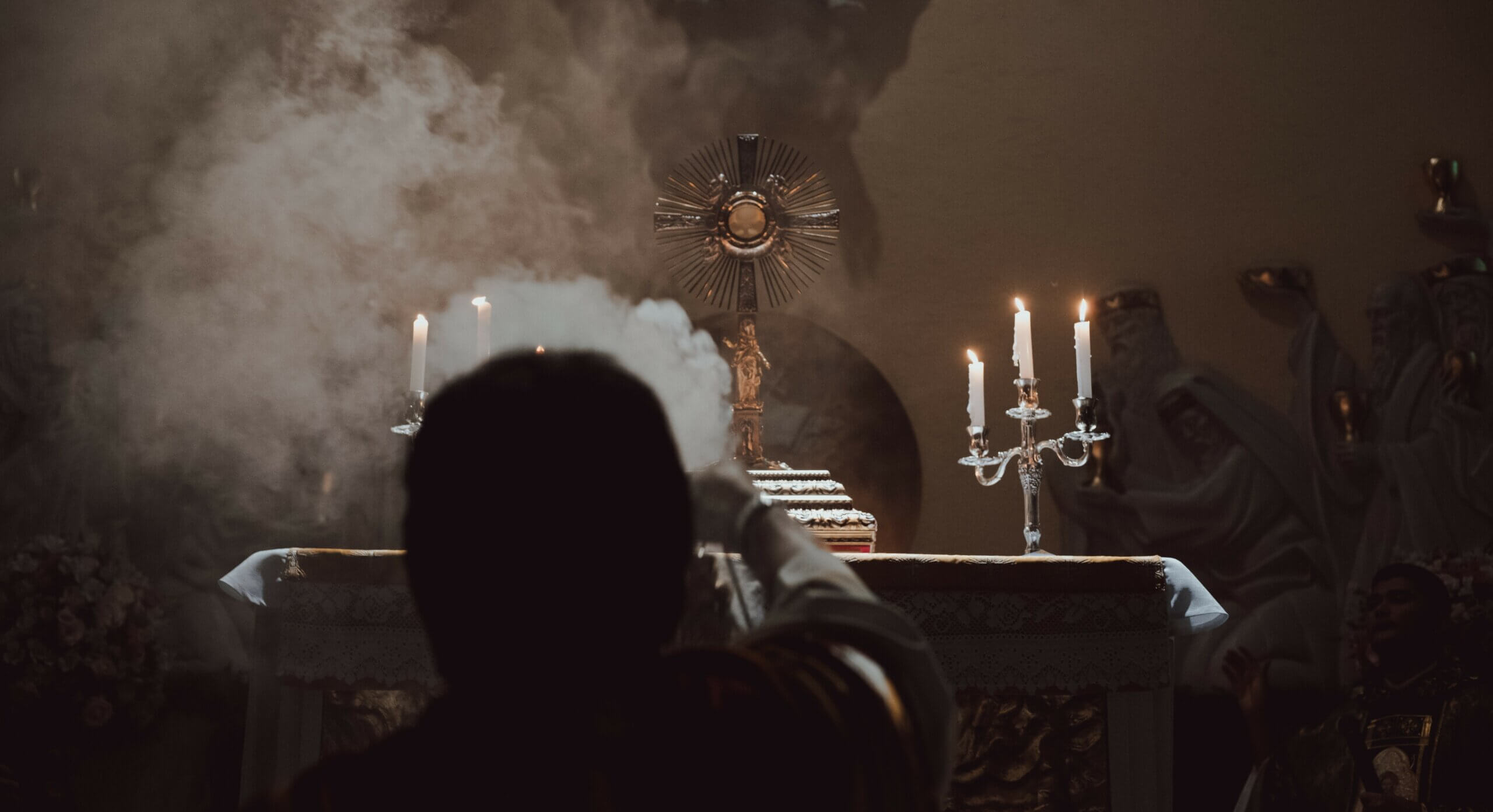
![Don’t Have A Spiritual Director? 5 Things You Can Do To Find One [Video]](https://www.goodcatholic.com/wp-content/uploads/2023/02/HTRTB-Lesson-8-Ellenrieder-Cropped.jpg)
